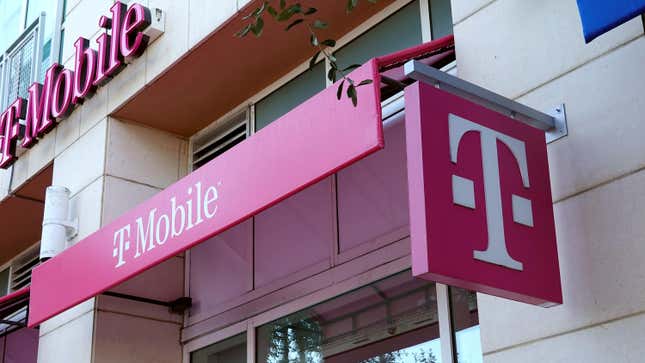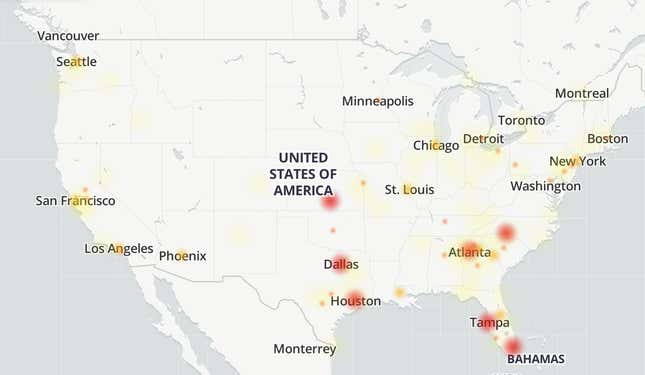
From New York to California, a T-Mobile outage swept the US late on Monday (Feb. 13).
More than 80,000 reports of problems were lodged by T-Mobile users on DownDetector at the peak of the problem around 10pm east coast time. Apple iPhone 14 owners said their signal bars were at zero, and the phones were defaulting to the emergency SOS satellite indicator.
According to the website that tracks outages, the locations with most reports of T-Mobile’s stunted service were Los Angeles, Las Vegas, Chicago, Seattle, Phoenix, Houston, New York City, Dallas, and San Diego.
Some joked that the US might have accidentally shot down a T-Mobile satellite instead of surveillance objects. However, T-Mobile’s president of technology, Neville Ray, had a different explanation. It was “a 3rd party fiber interruption issue that has intermittently impacted some voice, messaging and data services in several areas,” he said on Twitter around midnight. “The situation is improving and we hope to have a full resolution very soon. We apologize for any disruption caused.”
An hour later, Ray said the carrier has seen “significant improvement” and it’s “operating at near normal levels.” By then, complaints had drastically slowed down and many users even reported the network was back. For the complaints that continued to trickle in intermittently, T-Mobile’s help account on Twitter kept responding to them but was unable to provide a timeline on when the issue would be fully resolved.
Mapped: The T-Mobile outage

The impact of the T-Mobile outage on lives and livelihoods
T-Mobile serves over 113 million customers in the US, and disruptions to its service can create widespread problems.
A slew of users are asking for partial refunds on their bill. Given that several jobs rely on the internet—remote corporate jobs, social media, gig work like Uber and DoorDash, and more—some lamented lost wages and other job-related inconveniences.
Another set of T-Mobile subscribers complained that even emergency numbers were out of reach. In 2021, T-Mobile had to pay $19.5 million to settle a probe into a long outage the year prior that led to more than 20,000 failed 911 emergency calls.
Making matters worse, the outage was not just limited to T-mobile. Down detector and others began to show issues—albeit fewer in number—with AT&T and Verizon as well, as Pittsburgh-based tech blogger Aaron Zollo pointed out.
How to fix the T-Mobile outage
As the outage persisted in pockets, Magenta shared some tips and tricks, as did several users:
- T-Mobile suggests “power cycling” your device—in simple turns, turn it off and back on
- Toggling airplane mode on and off has worked for some people
- For some, switching from 5G to 2G/3G seemed to fix the issue
Person of Interest: Neville Ray
The outage hit the same day as Neville Ray, who has been at the company for over 23 years now, announced his decision to retire later this year.
Another thing: T-Mobile’s hacker problem
In mid-January, T-Mobile reported that a “bad actor” started stealing personal data of 37 million customers, including “name, billing address, email, phone number, date of birth, T-Mobile account number and information such as the number of lines on the account and plan features,” between Nov. 25 and Jan. 5—when the carrier detected and patched the problem.
This was the eighth data breach in six years at the telco. For a data breach in August 2021, which compromised the data of 77 million users, T-Mobile had to shell out a $350 million fine.
Related stories
🌐 How one programmer broke the internet by deleting a tiny piece of code
👂🏼 Blocking AT&T’s merger with T-Mobile has been great for US consumers, but bad news for operators